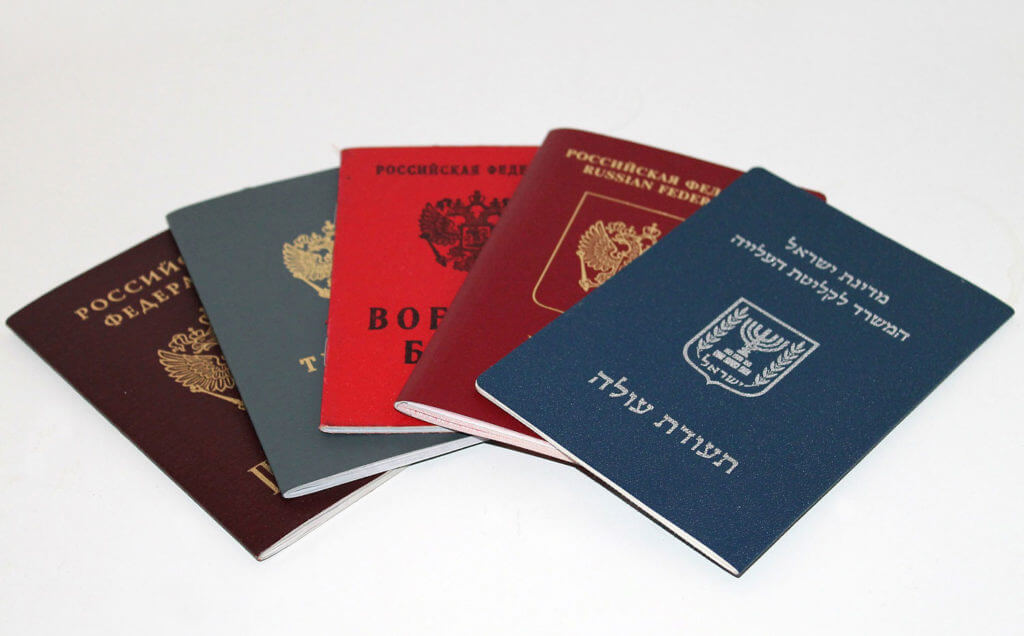Tax benefits and exemptions for new immigrants in Israel
The State of Israel encourages immigration (Aliyah) and grants a wide range of tax exemptions and benefits to new immigrants. The purpose of the benefits and incentives is to encourage immigration from countries with more favorable tax policies and also to ease the transition and integration in Israel. The generous tax benefits were expanded in Amendment 168 of the Income Tax Ordinance that the Tax Authority published on September 16, 2008. The purpose of expanding the tax benefits is to encourage Aliyah of quality human capital as well as investors with financial potential by creating certainty for immigrants and operational simplicity while facing the tax authorities.
New immigrant definition
An individual who has never been a resident of Israel in the past and became a resident of Israel for the first time.
What is not included in the tax exemption?
It is important to remember that work performed in Israel is not exempt from tax in any case. New immigrants who work within Israel are in most cases fully taxable. Tax liability will also apply if the work was performed for a company that is not a resident of Israel.
Our firm has dealt with many cases where new immigrants performed work from Israel and there was a risk of double taxation. It is advisable to consult and understand how it’s best to act, what to avoid and how to optimally utilize the benefits offered to new immigrants.
Summary of exemptions for new immigrants
Exemption for new immigrants | Duration of exemption |
Business income from abroad | 10 years |
Passive income from abroad | 10 years |
Capital gains from abroad | 10 years |
Salary from abroad | 10 years |
General “bending” of control and management, Controlled Foreign Company and Foreign Professional Company, exemption from reporting | Exists |
Are new activities included in the exemption? | Included in the exemption |
Interest income on foreign currency deposit in the bank of Israel | 20 years |
Tax exemptions and benefits for new immigrants, including the expansions introduced in Amendment 168
- Exemption from tax on all types of income – full exemption from taxation for a period of ten years on all assets and income originating outside of Israel, including: Passive income from rental fees, interest, dividends, royalties and pensions originating abroad, income originating from a business, profession and additional salaries from work (as long as the place of work is not in Israel).
- Exemption from capital gains tax – exemption from capital gains tax on the sale of assets abroad during the ten-year period from the day a person became a resident of Israel.
* If the asset is sold after the end of the period, the profit accrued up to the end of the ten-year period will be exempt and capital gains tax liability will apply only to the profit accrued from the expiration of that date.
* The exemption also applies to assets purchased after the date of immigration and sold during the exemption period.
* The exemption also applies to assets received through inheritance by a new immigrant, even after the date of his immigration to Israel.
- Exemption from income tax on income abroad of a company owned by a new immigrant (a distinction must be made between a company owned by a new immigrant and management by him, since any work or activity performed from Israel will be taxable in Israel).
- New immigrants are fully exempt from the obligation to report exempt income during the exemption period.
- Tax relief on pension even after the exemption period – The amount of tax on a pension originating outside of Israel, due to work in a foreign country, will not exceed the amount of tax that would have been paid on that pension in the country where the pension is paid, if he remained a resident of that country.
- Tax benefits on interest income from a foreign currency deposit – Interest income on a foreign currency deposit in a Bank in Israel will be exempt from tax for new immigrants for twenty years from the date of their immigration to Israel, provided that the source of the funds deposited in the deposit belonged to the new immigrant before he became a resident of Israel.
Year of acclimatization for new immigrants and returning residents
Section 14(b) of the Income Tax Ordinance establishes the mechanism of the “year of acclimatization” which allows the new immigrant to continue to be considered a foreign resident for one year from the date of immigration to the country. The mechanism is intended to encourage those who are hesitant and afraid of the irreversible implications of the decision to immigrate to Israel, and in fact allows a “trial year” in which one will be considered a foreign resident and after which he can decide whether to immigrate to Israel or return to the country of residence. The operation of the mechanism depends on the individual’s choice. If the individual chooses not to use this mechanism, his tax status will be determined according to the Ordinance. If the individual chose to activate this section and subsequently decided to settle in the country as a resident of Israel for tax purposes, at the end of the “year of acclimatization” all the benefits detailed above for new immigrants will apply to him, but the “year of acclimatization” will be considered part of the exemption period.
For more on the year of acclimatization for a new immigrant click here.
To submit a request for a year of acclimatization click here.
Tax credit points for new immigrants
Another important benefit is the granting of tax credit points for a period of four and a half years from the date of immigration to Israel. Immigrants who immigrated from 1.1.2022 will receive tax credit points as follows:
- In the first 12 months of immigration – 1 additional tax credit point.
- In the next 18 months – 3 additional tax credit points.
- In the next 12 months – 2 additional tax credit points.
- In the next 12 months – an additional tax credit point.
Immigrants who immigrated before 1.1.2022 will receive tax credit points for a period of three and a half years, as follows:
- In the first 18 months of immigration – 3 additional tax credit points.
- In the next 12 months – 2 additional tax credit points.
- In the next 12 months – an additional tax credit point.
The value of one tax credit point in the 2024 tax year is 2,904 NIS per year
Real estate tax benefits for new immigrants
A new immigrant is entitled to a discount on the payment of acquisition tax when purchasing a residential apartment or business property (or land intended for their construction), provided that they will be used by the immigrant and were purchased in Israel during the period between one year and up to seven years after the date of immigration to Israel. The benefit can be received only once for residential property, and once for a business. Additional information in Real Estate Taxation Procedure No. 1/2023 that the Tax Authority published in January 2023.
Acquisition tax rate for immigrants from 16.01.2023 to 15.01.2024:
- 0.5% on the part of the property value up to 1,928,220 NIS.
- 5% on the part of the property value above 1,928,220 NIS.
Business assistance for new immigrants
Business entrepreneurship encouragement program
Many are not aware that the Ministry of Aliyah and Integration operates a program to encourage business entrepreneurship for new immigrants. The program includes providing loans and advisory meetings that will allow new immigrants to establish businesses, engage in entrepreneurship and develop existing businesses. Assistance is provided at five business centers for immigrants and returning residents (Ma’a lot). For submitting an application for assistance, click here.
Assistance for startups
The Ministry of Aliyah and Integration provides assistance to new immigrants in establishing startups, from the stage of mapping needs to developing a business model, financing loans under preferential terms, business support and more. To submit a request for assistance in establishing a startup click here.
Notes and comments
- Gifted asset – As opposed to an asset received through inheritance (as detailed above), income generated from an asset received as a gift after the date of immigration will not be eligible for tax benefits.
- Mixed activity – A new immigrant who generates income from personal endeavor, where part of the work was performed in Israel and part of it outside Israel – the part produced in Israel is not eligible for exemption. In such cases it is possible to split the income from the mixed activity and pay tax in Israel only for the part that was performed in Israel, calculated according to the number of days of stay. This situation can be disputed in certain cases, and it is advisable to consult with professionals on the matter.
- Additional benefits – This article focused on tax benefits for new immigrants. It is important to note that the State of Israel invests significant efforts in encouraging immigration through a range of additional benefits – exemptions and discounts on car purchases and personal imports, customs exemption on the import of goods, municipal tax discounts, financial assistance (absorption basket, public housing and social benefits) and more.
End of exemption period
It is very important to be ready and to plan in advance the end of the exemption period. Our firm has extensive experience in assisting new immigrants in reducing tax risks in Israel and abroad and maximizing the benefits available to them. Click here.
In summary
While the State of Israel provides extremely generous tax benefits for new immigrants, navigating through this process while facing tax authorities, demands early consultation with taxation experts. This ensures immigrants attain appropriate status and optimal eligibility for all available benefits. Nimrod Yaron & Co. accompanies immigrants in all matters related to arranging taxation between countries, exercising rights and preventing double taxation.









